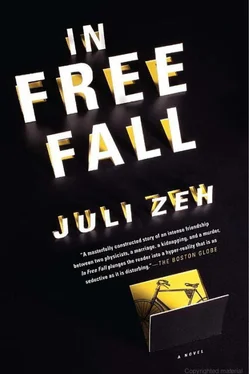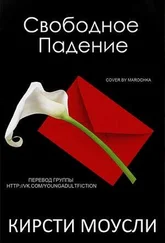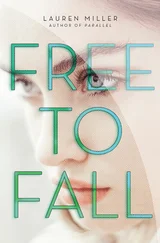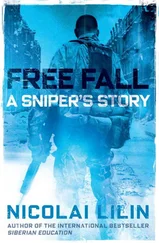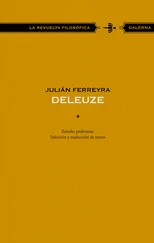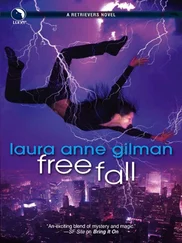“Two tops, two pairs of trousers, and two pairs of shoes,” he says. “The jerseys in yellow. And take Sebastian with you for size.”
Sebastian puts the cooler down at his feet as gingerly as if it were a newborn baby in a cot, and gets out of the van. Her mind completely blank, Rita watches him as he walks into the shop with Schnurpfeil. When the two men have disappeared, Schilf puts an arm over the headrest and looks back at her. They are silent. It feels good to be silent, even though Rita knows that this long stare is only Schilf’s way of preventing her from getting out and walking away.
“All right, then,” she finally says. “Give it to me straight, in simple language.”
Schilf presses his thumb and index finger against his eyelids, as if he needs to concentrate intensely.
“Oskar created a parallel universe,” he says, “in which Liam had been kidnapped and not kidnapped at the same time. Sebastian was supposed to recognize what it means not to be able to trust in reality. What it is like to have no ‘either/or’ but only an ‘as well as.’”
“So much for the theory,” Rita says. “Let’s move on to the practice.”
“In a way, the kidnapping was an experiment. But something went wrong. Another memorial to the horror of what we call coincidence was built. And that tangled up the worlds.”
“I’m sorry. I don’t follow you.”
“Imagine two trains traveling next to each other for an instant, at exactly the same speed, totally parallel. At this point, it is possible to change trains. Oskar drew up the timetable, and coincidence created the disaster. And Sebastian slid from one universe into the other.”
Schilf takes his hand away from his face at last. His eyes are glittering.
“Rita, my child, we’re going to create a second parallelism, in order to enable Sebastian to return to his world.”
“You can be really frightening sometimes.”
Rita casts a glance at the cooler, tosses her hair back, and looks out of the window as if she is trying to convince herself that outside, at least, everything is as it was.
“This is what I understand,” she says. “It’s not about this nonsense of parallel universes, but about the fact that Oskar is the one who is really guilty. You’re saying that he has fucked up his friend’s life in order to teach him a lesson about responsibility. And he’s sitting in Geneva pretending that this has nothing to do with him.”
“That’s exactly what I’m saying!”
Schilf’s face lights up and Rita cannot bear to contradict him. She allows him to stretch out his hand and pat her on the cheek. Sometimes she wishes that her work still required her to wear a uniform. That would keep the world at a slight distance.
“You want revenge,” Rita says, “justice, a moral victory. All things that have nothing to do with police work. That’s what you yourself taught us in our seminars.”
“I want to re-create a certain order of things,” Schilf says. “Apart from that, you’re right.”
“You’re overstepping the bounds of your responsibilities, and for your own personal pleasure, too. Give me one reason why I should play along, Schilf!”
“All right,” the detective says. “I’ll show you the reason.”
Rita recognizes the documents that he is pulling from his briefcase. They are copies from the file on Dabbelink’s murder. But Schilf is looking for something else. He flips back and forth, dips his hand into the briefcase again, and takes out a semitransparent photograph. The picture trembles between his fingers as he passes it to her. Rita lays the murky photograph against the window.
It shows a cloudy shape at least as wide as a hand—it is oval and so indistinct that it seems to be moving against the black background. Curved around the shadowy center is a tube, white as a maggot and filled with labyrinthine entrails. The whole thing is held together by two layers of skin on the outside: one thick and black in color and the other thinner and pale. Although Rita finds the sight repellent, she cannot tear her eyes from it. At the bottom of the picture is the detective’s name in capital letters.
“Since you constantly seem to doubt my intentions,” Schilf says, “why not simply look inside my brain?”
He rubs the top of his sparsely covered head, with its elephant face sitting loosely on the bone structure in front.
“Take a good look.”
His index finger strokes the back of the maggot and traces the curling outline tenderly. At the bend, Rita notices a patch that looks like a bird’s egg in both shape and size. Schilf taps it with his finger a few times.
“Good Lord,” Rita says.
“No,” Schilf says, “certainly not him.”
Rita Skura sits there staring at the patch, silent, as if the connection between her brain and her body has just been severed. She knows that she should hug him. She would even do it gladly. He smiles bravely, a child turned into a grizzled old man, and Rita wants to hold him tight for a while and press her face against his, not to comfort him, but because she suddenly feels alone, abandoned, as if she is surrounded by marionettes and Schilf is the only other creature on earth who belongs to that dying species: the live human being.
But she can do nothing. She cannot find the right gesture, cannot even smile along with Schilf, although he is looking at her with such warmth.
“How long?” she asks, finally.
“Who knows? A couple of weeks.”
Schilf takes the result of the MRI scan back and puts it in the briefcase at his feet. When he straightens, he and Rita are sitting one in front of the other like passengers on a bus. Rita sees his scalp showing through his thinning hair, and some flakes of dandruff.
“That’s some ammunition, eh, Rita my child? Do you believe that I’m serious now?”
Rita nods. Schilf must have heard that. His smile causes his ears to lift.
A dove has been run over on the road. Feathers dance around the squashed remains whenever cars whoosh past. The traffic light turns red and the cars roll up to it with studied slowness, stopping at a well-calculated distance. A passing woman looks curiously at the police van. On the other side of the road, a young man is whistling for his dog. A cyclist rushes to get off the pavement, and nearly crashes into a child, who drops his ice cream and starts crying.
“A civil war will break out if we stay here any longer,” Schilf says.
“What if he doesn’t come tonight?” Rita asks.
“A man of honor turns up to a duel.”
“How do you know that?”
Schilf turns sideways to look at her from the corner of his eye.
“Shall I take the photo out of the briefcase again?”
The minutes dawdle past, and the door to the sports shop finally opens. Schnurpfeil is laden with colorful plastic bags. Sebastian waves.
“Before I forget,” Schilf says. “The police chief rang me. I’m supposed to go back to Stuttgart immediately.”
Rita sits bolt upright, as if she’d had an electric shock.
“The hospital scandal has dissolved into thin air,” Schilf says, blowing into the palm of his hand. “Puff!”
“What are you saying?”
“I’m saying that my time is limited, on all fronts.”
While Rita huffs, as if she is an overheating computer about to crash, Schilf turns to her once more.
“It was a trainee nurse,” he says. “She gave heart patients blood-thinning drugs before their operations instead of the prescribed tranquilizers. Apparently these pills all look the same. A stupid mistake.”
Rita Skura sinks back into her seat, exhausted. What a ridiculous waste of a few weeks. Sleepless nights, visits to the hospital, neglecting the cat, being unfairly taken to task by her superiors—what had it all been for? Who on earth was interested in an exceptional performance to no end? There was only one way to see it: total failure. The thought has barely crossed her mind before she feels as if she has been declared cured, all without having an operation. She is floating in the air, she could sing out loud. She could kiss the detective or wring his neck.
Читать дальше
